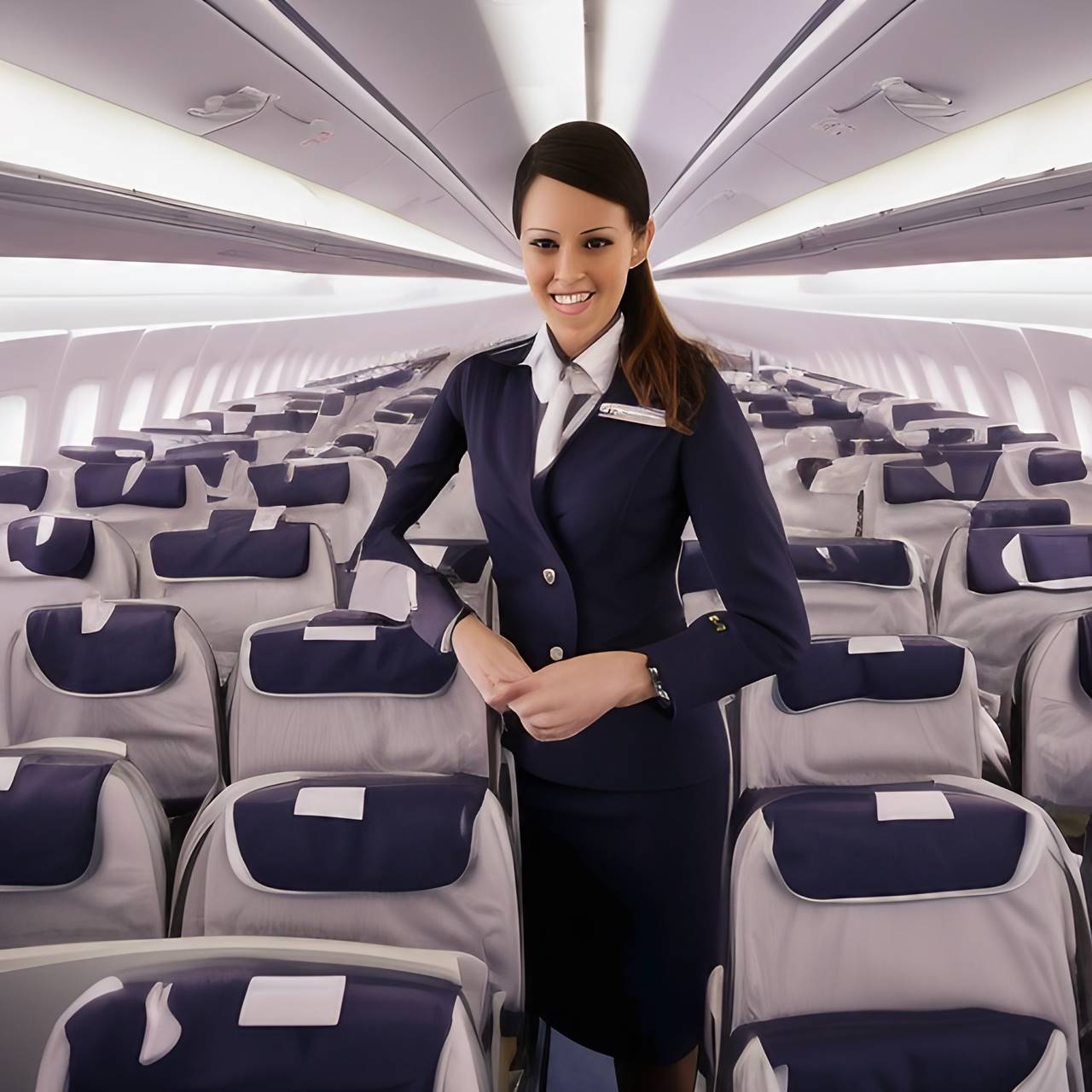The flight attendant schedule is composed not only based on the passenger demand but more importantly, the schedule has to comply with the requirements of the aviation regulations, including rest periods for flight attendants and specific flying-time limitations. Flight attendant schedules are often complex and must be adjusted on a regular basis to meet both passenger needs and airline operational requirements. In addition, aircraft changes due to maintenance or other issues may require schedule adjustments as well.
Also Read: Understanding Cabin Crew Roster and Flight Attendant Schedule
The airline industry is one of the most fast-paced and hectic industries in the world. Flight attendants are often required to work flexible hours, with the ability to change from month to month and even at any time based on airlines’ needs. Understanding how the flight attendant schedule works helps them manage both their professional and personal lives so they can make the most out if this career.
Contents
- So, how many days do Flight Attendants work?
- Do Flight Attendants fly every day?
- Can Flight Attendants work only on weekends?
- Do Flight Attendants have to live near an Airport?
- Benefits of Being a Flight Attendant
- How many hours can a Flight Attendant work in a Month?
- Can a Flight Attendant have another job?
- What is the Average Salary of a Flight Attendant?
- What is the Job Outlook for Flight Attendants?
- What are the Requirements to Become a Flight Attendant?
- What are the Physical Requirements to be a Flight Attendant?
- How much vacation time do Flight Attendants get?
- Summary

So, how many days do Flight Attendants work?
Most flight attendants start out working 5-6 days per week. However, it’s important to remember that flight attendants don’t just work when the plane is up in the air. They also have to be at the airport early to prepare for the flight and they may have to stay late to clean up after the flight.
So, while a flight attendant’s shift may only be 8 hours long, they may actually be working 12 hours or more when you include all the time they spend at the airport. Depending on the airline, the size of its fleet, and the network routes, the shortest flight is 30 minutes and the longest flight can be up to 16 hours.
If you’re interested in becoming a flight attendant, you should be prepared to work long hours and deal with a wide variety of people and situations.
Also Read: 11 Things Flight Attendants Hate about the Job
Do Flight Attendants fly every day?
No, flight attendants do not fly every day. This is against aviation regulations due to the flight attendants’ need for rest. If flight attendants do not receive their required rest, it means they could be jet-lagged and therefore will be unfit to fly and perform their duties. Remember the job is not only about “tea or coffee?, beef or chicken?” Flight attendants should be ready to handle all sorts of emergencies on board and evacuate the aircraft when necessary. These tasks can only be performed when they’ve taken their proper rest periods.
The number of days off a flight attendant get depends largely on the size of the airline – how many planes, and network routes it has; and the passenger demands – usually high during busy seasons such as Thanksgiving, Christmas, New Year, Ramadan, etc.
Can Flight Attendants work only on weekends?
No, flight attendants cannot work only on weekends. This is because the airline industry is a 24/7 operation and flights depart and arrive at all hours of the day and night.
Do Flight Attendants have to live near an Airport?
No, flight attendants do not have to live near an airport. However, it can be helpful if they do. Depending on the airline, they may have to report for duty at any time of the day or night and it can be easier to get to the airport if you live nearby. Living near the airport also means avoiding traffic or any unwanted delays.
Keep in mind that flight attendants have a strict schedule to follow as the plane can and will take off in the interest of departing on time. The aircraft does not wait for a flight attendant who is late. It is unlike most ground jobs where you can simply walk in late and just do overtime to meet deadlines.
Benefits of Being a Flight Attendant
There are many benefits of being a flight attendant:
- For starters, you get to travel the world and see places that most people only dream of seeing. You also get to meet new people from all over the globe and form lasting friendships.
- Flight attendants receive free or discounted travel privileges, which means they can fly for free.
- Being a flight attendant can be a very rewarding career. You get to help people and make sure they have a safe and comfortable flight.
- If you are interested in becoming a flight attendant, make sure to research the requirements of the job and the airlines that you are interested in working for. You should also be prepared to work long hours and deal with a wide variety of people and situations.
How many hours can a Flight Attendant work in a Month?
The set limit for flight attendants to work in a month depends on the airline, the region and its laws as well as the international aviation regulations. This is to prevent employees from working too much, becoming exhausted, and therefore being unfit to fly.
One of the highest numbers of flying hours flight attendants have for their specific airline is about 100 flying hours. So there are flying hours, which roughly means the time the plane takes off and then lands. And then there are other duty hours when flight attendants need to show up about 2 hours before departure time for briefing, plane preparation, boarding passengers all the way to assisting passengers in disembarkation for landing. After passengers disembark for landing, flight attendants still have certain duties to perform before completely signing off for the day.
Overall, different airlines have different rules and regulations regarding the maximum number of hours that a flight attendant can work in a given month. However, most airlines generally limit flight attendants to working no more than 80 hours in a 28-day period. This means that flight attendants typically work an average of fewer than 30 hours per week.
Can a Flight Attendant have another job?
Depending on the airline and the region and its laws, yes, flight attendants can usually have other jobs. These jobs are mostly freelance or part-time type due to the unpredictable schedule of a flight attendant. Aside from having a job on the side, other flight attendants also opt to spend their free time getting a degree or pursuing other formal studies that they plan to use once their leave their flight attendant careers.
What is the Average Salary of a Flight Attendant?
The average salary of a flight attendant in the United States is $50,000 per year. However, this number can vary depending on the airline, the location, and the experience of the flight attendant.
What is the Job Outlook for Flight Attendants?
The job outlook for flight attendants is good. The demand for flight attendants is expected to grow at a rate of 5% over the next 10 years. This is about as fast as the average for all occupations.
With the growth of the economy and the increased demand for air travel, airlines are expected to keep hire flight attendants. This is good news for those interested in becoming a flight attendant.
Also Read: 15 Cabin Crew Career Progression Paths for Flight Attendants

What are the Requirements to Become a Flight Attendant?
The requirements to become a flight attendant vary by airline, but there are some general requirements that all airlines have.
- To become a flight attendant, you must be at least 18 years old and have a high school diploma or equivalent.
- You will also need to be able to pass a background check and a drug test.
- You will also need to have a valid passport and be able to speak English fluently.
- Some airlines may require you to have previous customer service experience.
- And finally, you will need to be able to pass a physical examination.
What are the Physical Requirements to be a Flight Attendant?
The physical requirements to be a flight attendant vary by airline, but there are some general requirements that all airlines have.
To become a flight attendant, you must be able to reach the overhead bin with ease and have the ability to lift 50 pounds. You will also need to have 20/20 vision (with or without corrective lenses).
Also Read: Are Cabin Crew Tattoos Allowed? Flight Attendant Tattoo Policy
How much vacation time do Flight Attendants get?
Flight attendants typically receive from two weeks to a month of vacation time per year. However, this vacation time may be increased or decreased depending on the airline, passenger demands, and the employee’s seniority. Aside from their official, proper vacation leave, flight attendants also get to travel on their days off and can have small holidays, especially with discounted tickets available. These mini holidays on days off should of course meet the airlines’ regulations on cabin crew rest periods.
Summary
The job of the flight attendant is mostly mistaken to just being a service type of job but any day a flight attendant can be required to save lives such as by performing CPR or evacuating a plane during an emergency. Therefore flight attendants’ schedules are always closely monitored to uphold the airlines’ safety reputation. Overall, the restrictions and limitations of the flight attendants’ schedule depend on the airline and aviation regulations.
These regulations are in place to protect the cabin crews, the passengers, and the overall business of the safe airline industry. When violated, airlines can be met with hefty fines all the way to having the business suspended. We can therefore trust that airlines will perform their utmost duties.